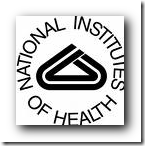This is a bit of a tough nut, but there might need to be 2 reporting sides to run a query for a match, in other words when Pharma or other parties donate funds there might be a reporting function added, in other words registering with the NIH. Once in a data base a unique identifier code is created and this would be disclosed to the party with the donating funds. The dollar amount would also be included.
By having the number in their possession, the amendments and/or subtractions could be made and updated as things change so much in real time today. At the other end when applying for a grant, the form would request the number or unique identifier code to be entered, and there could be more than one of course. This is not a cure all to catch every bit, but there would be some type of reporting system established at least for a match to get an idea of what is going where and will keep all the honest folks honest as well as some business intelligence numbers on how much is going, when and where and a good overview of what the project cost is really turning out to be.
Each grant would have a running toll of donators that could be updated in real time. This process can pretty much be fully automated so it’s only the individuals responsible for reviewing the reports that come in to play as far as monitoring. There could be a lot of human time now devoted to research and find some of this information now in light of the recent inquiries from Congress. 
Queries can be run to find no matches one each side as well, or even more refined to find similars, for further examination in case information was erroneously missed.
That handles the statistical portions, but the other area of conflict of interest outside the financial area can get pretty gray and more than likely are pretty much a case at a time situation as the financial ties would probably have some influence here in keeping things transparent. BD
Under current NIH rules, researchers are required to inform their universities about any “significant financial interests” they hold in research financed by the NIH. The threshold for income is $10,000. In turn universities are obliged to inform the NIH of the steps they’ve taken to manage, reduce or eliminate conflicts of interest.
Critics charge the NIH hasn’t being policing the university researchers closely enough. In October, the NIH suspended a five-year, $9.3 million grant to Emory, after Senator Chuck Grassley (R., Iowa) raised questions about drug industry payments to the chair of the med school’s psychiatry department.
At a Friday meeting of a committee advising the head of NIH, Sally Rockey, the NIH’s acting deputy director for extramural research, highlighted parts of the regulations under review. Among the questions being asked? Should researchers be required to disclose all their sources of income if they get an NIH grant? Does the definition of “significant financial interests” need to be changed? And should universities be required to disclose the nature of the conflicts of interest in their reports to the NIH? At present they don’t.
Related Reading:



0 comments :
Post a Comment